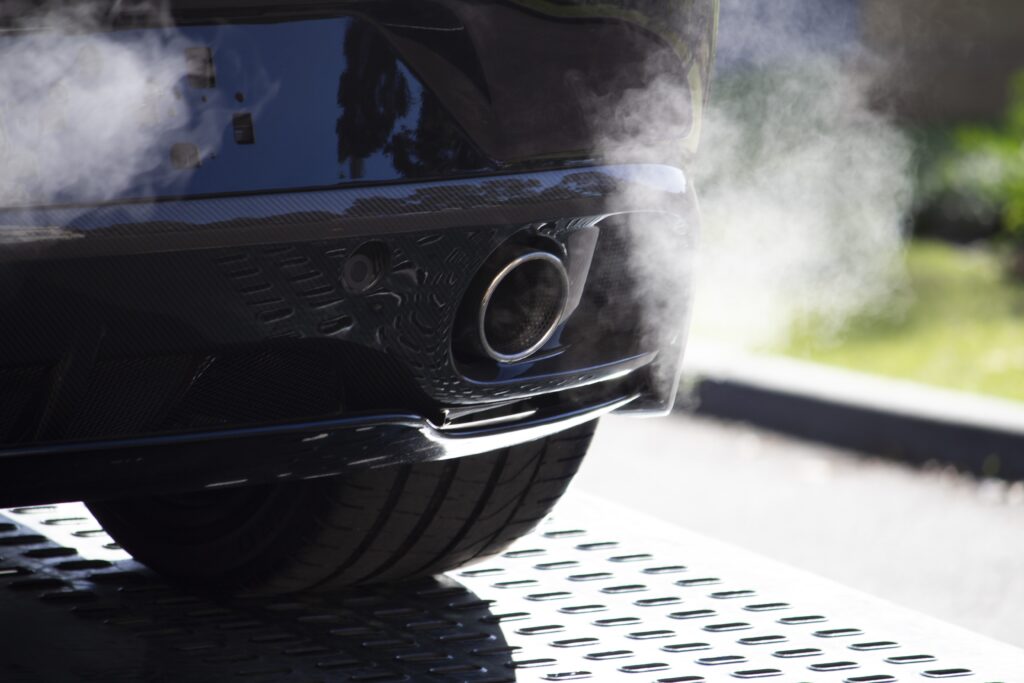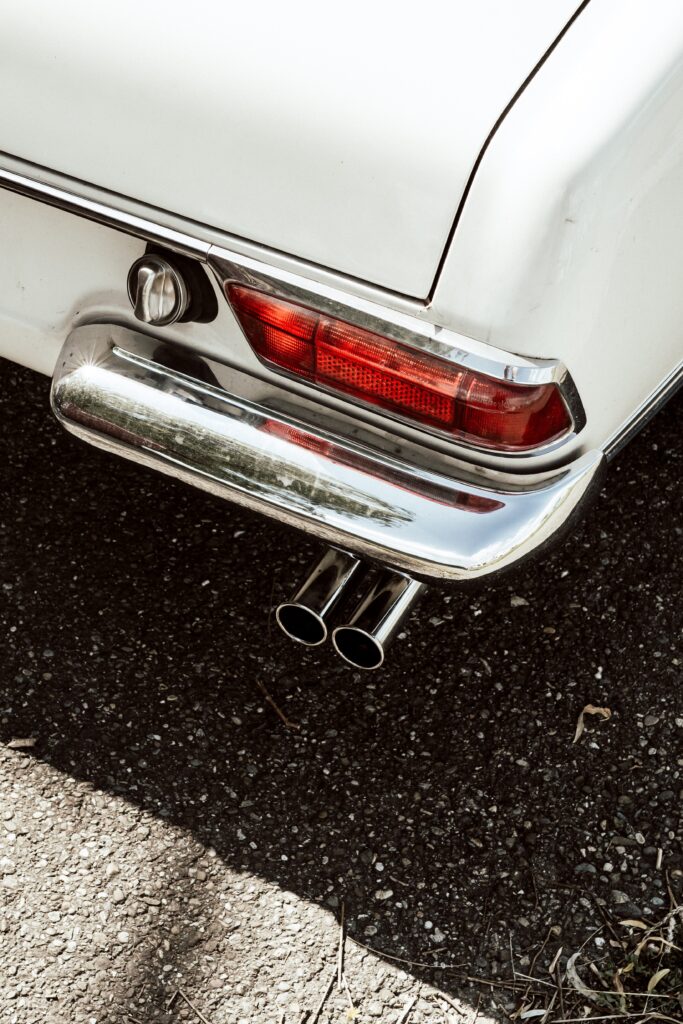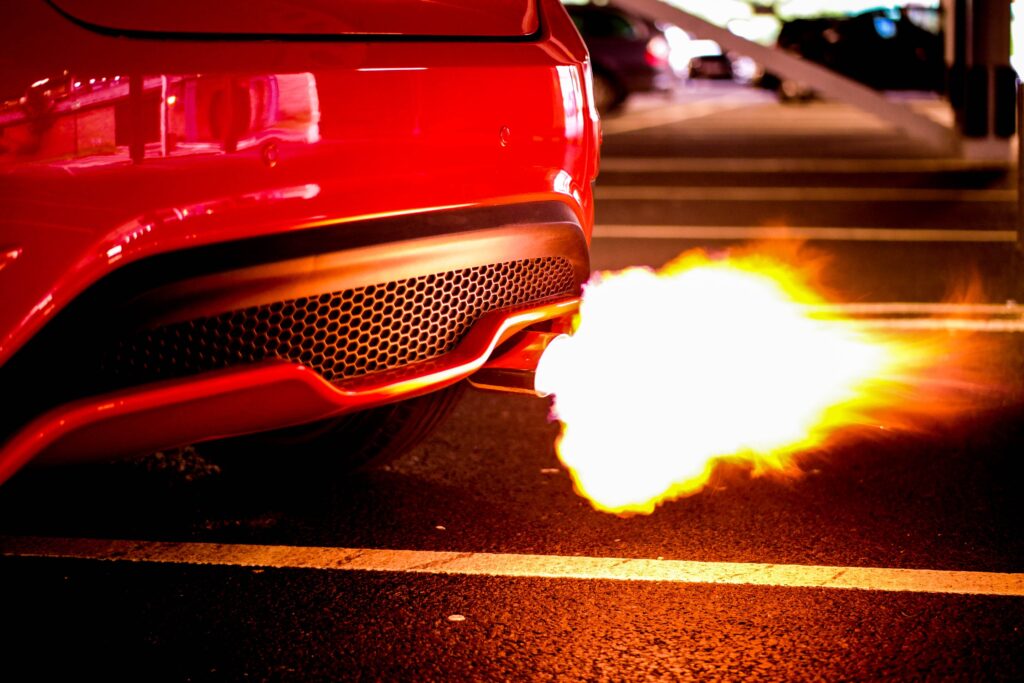You’re driving down the road, enjoying your morning commute, when suddenly you notice thick plumes of black smoke billowing out of your car’s exhaust. Panic sets in as you wonder what could be causing this alarming sight. Is your car in danger? Are you polluting the environment? In this article, we will explore the possible reasons behind black smoke coming out of your exhaust and provide some helpful tips on how to tackle this issue. So, buckle up and let’s get to the bottom of this smoky mystery!

Understanding the Role and Functionality of Car Exhaust
Significance of Car Exhaust
The car exhaust system plays a crucial role in the overall functioning of a vehicle. It is responsible for safely removing toxic gases, such as carbon monoxide, nitrogen oxides, and unburned hydrocarbons, from the engine and expelling them into the atmosphere. Without an efficient exhaust system, these harmful emissions would be released directly into the environment, contributing to air pollution and posing health risks to both humans and the planet.
Component parts of an Exhaust system
The exhaust system is comprised of several key components that work together to ensure the proper functioning of the system. These components include the exhaust manifold, catalytic converter, muffler, resonator, and tailpipe. Each part has a specific role in the overall process of eliminating harmful gases and reducing engine noise. For instance, the exhaust manifold collects the gases emitted by the engine cylinders and directs them towards the catalytic converter, which then reduces their harmfulness before passing them through the muffler and resonator to minimize noise, and finally expelling them through the tailpipe.
How Exhaust system Works
The functioning of the exhaust system is relatively straightforward. Once the engine combusts fuel and air mixture, the resulting gases are channeled into the exhaust manifold, where they are collected and transported towards the catalytic converter. Here, chemical reactions occur to convert the gases into less harmful substances. The partially cleaned gases then travel through the muffler and resonator, where noise reduction takes place. Finally, the gases exit the vehicle through the tailpipe, completing the journey of the exhaust system.
Identifying Different Colours of Exhaust Smoke
Blue Smoke
When you notice blue smoke coming from your car’s exhaust, it indicates the burning of engine oil. This could be caused by worn-out piston rings or seals, which allow oil to leak into the combustion chamber and burn along with the fuel-air mixture. Blue smoke is more commonly observed during initial engine startup or acceleration, and it typically signifies the need for immediate attention to prevent further engine damage.
White Smoke
White smoke from the exhaust can be a sign of coolant or water entering the combustion chamber and burning along with the fuel. This may be caused by a blown cylinder head gasket, a cracked engine block, or a damaged cylinder head. It is crucial to address this issue promptly, as the presence of water or coolant in the combustion chamber can lead to severe engine damage if left untreated.
Black Smoke
If you’re witnessing black smoke coming from your car’s exhaust, it is an indication that the fuel-air mixture in the combustion chamber is too rich. This means that there is an excessive amount of fuel being burned compared to the amount of air present. Black smoke is often caused by issues such as excessive fuel consumption, faulty engine sensors, problems with the turbocharger, or a malfunctioning emission control system. It is essential to identify and address the root cause of black smoke to ensure optimal engine performance and reduce harmful emissions.
Grey Smoke
Grey smoke may signify an issue with the transmission fluid, particularly if it is being burned along with the fuel. This can occur due to a faulty transmission modulator, a damaged vacuum hose, or other transmission-related problems. If you notice grey smoke coming from your exhaust, it is advisable to consult a professional mechanic who can diagnose and fix the issue to avoid further damage to your vehicle’s transmission.
Specific Reasons for Black Smoke in Car Exhaust
What does Black Smoke Indicate?
Black smoke in your car’s exhaust signifies an excessively rich fuel-air mixture. This means that there is more fuel being injected into the combustion chamber than can be efficiently burned, resulting in incomplete combustion. Incomplete combustion produces black smoke, which is a visible indication of wasted fuel and increased emissions of harmful pollutants.
Underlying Issues Resulting in Black Smoke
Several factors can contribute to the formation of black smoke in your car’s exhaust. One common cause is an overloaded fuel injector, which may be delivering an excess amount of fuel into the combustion chamber. This can be due to a faulty injector or a clogged fuel injector nozzle, hindering the proper atomization of fuel.
Another culprit behind black smoke can be a blocked air filter, which restricts the airflow to the engine and disrupts the fuel-air ratio. When the engine receives less air than it requires for combustion, an imbalance occurs, leading to the production of black smoke.
Moreover, a failing fuel pressure regulator can also result in black smoke. A dysfunctional regulator causes an inconsistent fuel pressure, disrupting the proper fuel delivery and throwing the fuel-air mixture off balance, resulting in excessive fuel consumption and black smoke emission.
Impact of Excess Fuel Consumption
Role of Overloaded Fuel Injectors
When fuel injectors become overloaded or clogged, they release an excessive amount of fuel into the combustion chamber. This not only leads to inefficient combustion but also contributes to an increase in fuel consumption. Over time, excessive fuel consumption can have a significant impact on your wallet and the environment, as it translates into higher fuel costs and increased emission of pollutants.
Effect of a blocked Air Filter
A blocked air filter restricts the flow of air to the engine, causing an inadequate air-fuel mixture. This leads the engine to compensate by injecting more fuel than necessary, resulting in excess fuel consumption. Additionally, a blocked air filter can lead to reduced engine performance, as the engine receives less air for combustion, hindering its efficiency and overall power.
The significance of a Failing Fuel Pressure Regulator
A failing fuel pressure regulator can disrupt the delicate balance between fuel and air, leading to black smoke and excessive fuel consumption. It is important to address this issue promptly, as a faulty regulator can cause further damage to the fuel system, impacting the engine’s performance and overall efficiency.

Faulty Engine Sensors and Black Smoke
Role of Engine Sensors in Combustion Process
Engine sensors play a crucial role in monitoring various engine parameters, including the air-fuel ratio, temperature, and pressure. They provide vital information to the engine control unit (ECU), which then adjusts the fuel injection and ignition timing accordingly. Without accurate sensor readings, the engine cannot maintain the optimal air-fuel ratio, leading to combustion issues such as black smoke.
Impact of faulty Mass Airflow Sensor
The mass airflow sensor (MAF) measures the amount of air entering the engine and sends this data to the ECU. If the MAF sensor becomes faulty or contaminated, it may provide incorrect readings, causing the engine to inject an excessive amount of fuel. This can result in a rich fuel-air mixture and the production of black smoke.
Issues Related to Malfunctioning Oxygen Sensor
The oxygen sensor (O2 sensor) detects the level of oxygen in the exhaust gases and relays this information to the ECU. A malfunctioning O2 sensor can cause the ECU to incorrectly adjust the air-fuel ratio, leading to a rich mixture and the emission of black smoke. Regular inspection and replacement of faulty sensors can help prevent these issues and maintain optimal engine performance.
Problems Associated with the Turbocharger
Role of Turbochargers in Engines
Turbochargers are components that increase engine power by compressing the intake air, allowing more air to enter the combustion chamber. This results in improved combustion efficiency and increased engine performance. However, when a turbocharger malfunctions, it can lead to a rich fuel-air mixture and the production of black smoke.
How Turbocharger Malfunction Leads to Black Smoke
A malfunctioning turbocharger can cause an imbalance in the air-fuel ratio. If the turbocharger is not supplying sufficient compressed air to the engine, the fuel-air mixture becomes excessively rich, resulting in incomplete combustion and the emission of black smoke. It is crucial to regularly inspect and maintain the turbocharger to prevent such issues and ensure optimal engine performance.
Correlation between Turbocharger and Fuel/Air Mixture
The turbocharger plays a significant role in maintaining the proper fuel-air mixture. By compressing the intake air, it allows the engine to generate more power with the same amount of fuel. However, if the turbocharger’s functioning is compromised, it can affect the optimal air-fuel ratio, leading to black smoke in the exhaust.

Role of Emission Control System in Smoke Colours
Understanding the Emission Control system
The emission control system is designed to reduce the harmful pollutants produced during the combustion process. It includes components such as the catalytic converter, oxygen sensors, and exhaust gas recirculation (EGR) valve. The system works by converting harmful gases into less harmful substances before they are released into the environment.
How a Faulty Emission Control system Produces Black Smoke
A faulty emission control system can disrupt the proper functioning of the exhaust system and lead to the production of black smoke. For example, a damaged catalytic converter may no longer effectively convert harmful gases, resulting in an imbalanced fuel-air mixture and black smoke emission. Regular maintenance and inspection of the emission control system are essential to prevent such issues and maintain a cleaner, more environmentally friendly vehicle.
Prevention and Solutions for Black Smoke From Exhaust
Regular Maintenance and Inspections
To prevent black smoke from your car’s exhaust, it is crucial to adhere to a regular maintenance schedule. This includes periodic inspections of the fuel system, turbocharger, emission control system, and engine sensors. Regularly replacing air filters, fuel filters, and spark plugs can also help maintain optimal engine performance and minimize the risk of black smoke emission.
Effective Repair Solutions for Common Problems
For specific issues causing black smoke, effective repair solutions can be implemented. These may include cleaning or replacing clogged fuel injectors, unclogging or replacing air filters, and repairing or replacing faulty engine sensors. Additionally, addressing turbocharger malfunctions and repairing or replacing damaged components in the emission control system can help eliminate black smoke from the exhaust.
When to Seek Professional Mechanic Intervention
While regular maintenance and repair solutions can often address black smoke issues, some underlying problems may require professional intervention. If you are unable to identify the root cause or are unsure about the necessary repairs, it is highly recommended to consult a qualified mechanic. They can diagnose the problem accurately and provide appropriate solutions to ensure your vehicle’s optimal performance and reduce harmful emissions.
In conclusion, black smoke coming from your car’s exhaust should never be ignored. It is a visible indication of underlying issues that can affect both the performance of your vehicle and the environment. Understanding the various causes of black smoke, such as excess fuel consumption, faulty engine sensors, turbocharger malfunctions, and emission control system problems, can empower you to take the necessary steps in prevention and solution. Regular maintenance, prompt inspection, and appropriate repairs will help keep your car running smoothly while minimizing harmful emissions and contributing to a cleaner and healthier environment.
